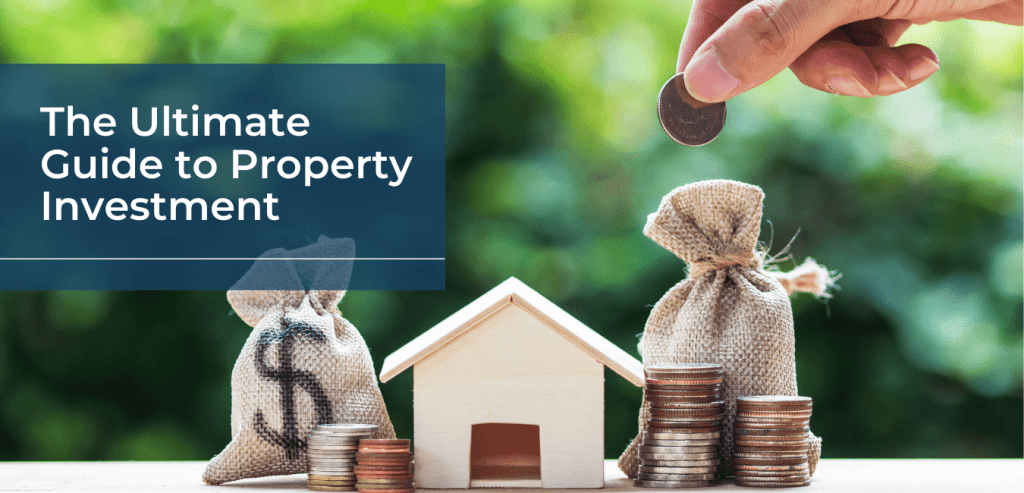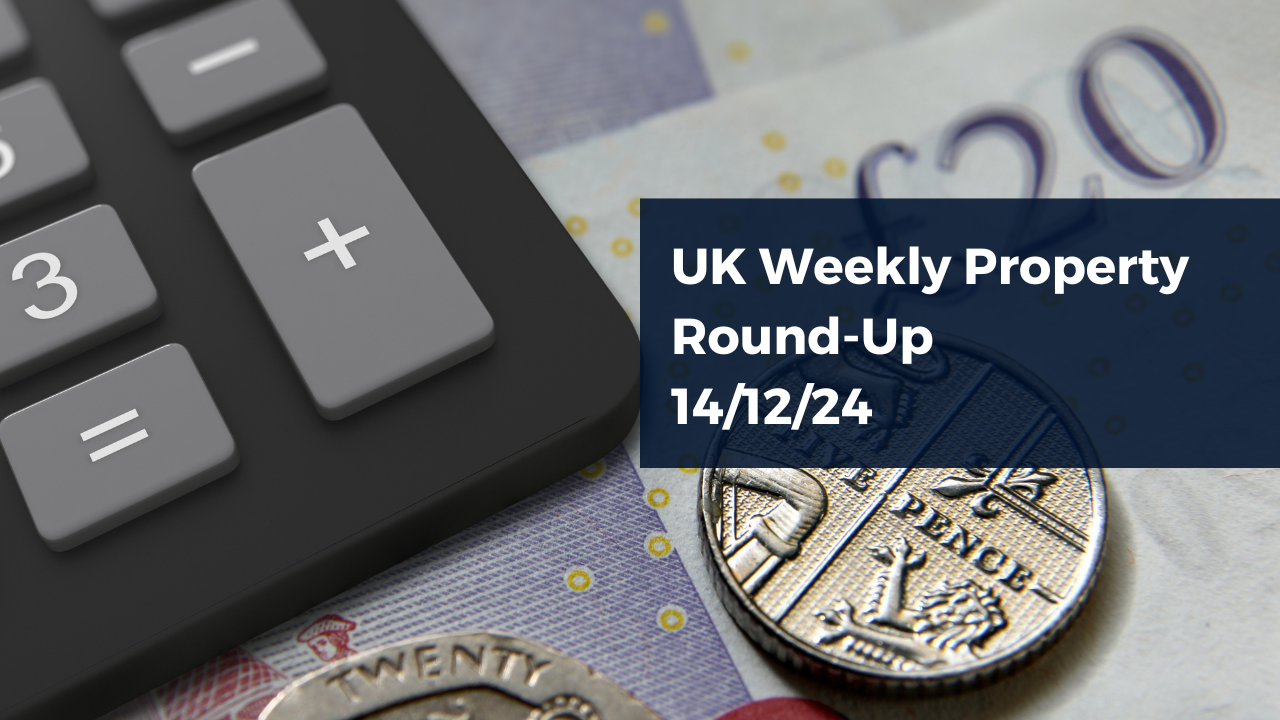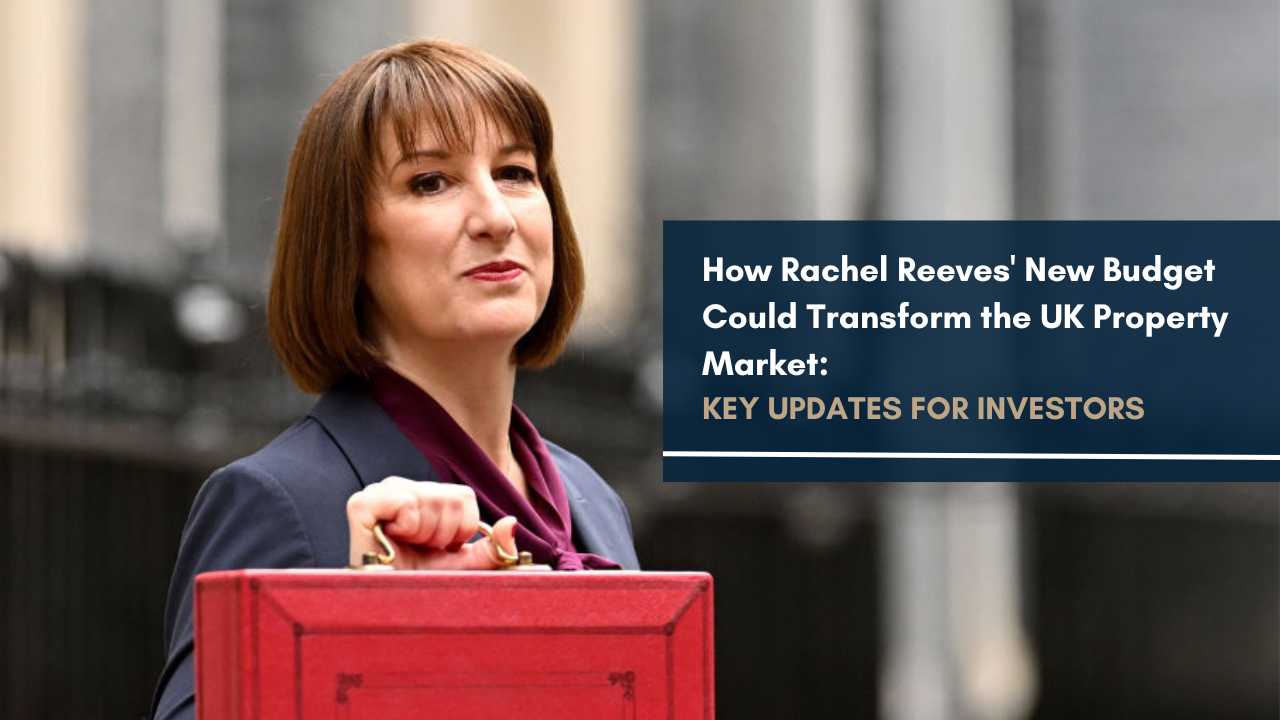Welcome to our ultimate property investment guide. Here, you’ll discover everything you need to know before embarking on your property investment journey in the UK.
First, we’ll begin with a series of questions to ask yourself before you even begin looking at investment properties. Then, we’ll consider why the property market is a solid choice over other investment asset classes. And then we’ll move onto the finer details – strategy, ownership structures, tax advice, and more.
All information discussed in this guide is accurate as of July 2023.
Questions To Ask Yourself Before Investing In Property
Are You Ready To Invest In Property?
Before you can get into the nitty-gritty details of how and where to invest in property, you must first consider if you are ready to step into the world of property investment.
Property is a relatively unique asset, permitting investors to be as hands-on or hands-off as they wish to be. However, it will still undoubtedly require a large portion of your time, funds, and attention, especially in the early days. And even if you outsource much of the management, ultimately this is your property and your responsibility. There is plenty that can (and will) go wrong along the way, from repairs to troublesome tenants to void periods.
Ask yourself, is this a responsibility you want to take on?
Do You Have The Funds?
Whilst the amount of money required to invest in property will inevitably vary based on the type of property you hope to purchase, having a sufficient starting pot is essential to help you begin your property investment career.
We usually advise that £40,000 is a good starting point for residential property, although as property prices increase, this advice will change. But, considering that a 25% deposit can purchase most buy-to-let homes with a 25% deposit, £40,000 will afford you a city centre apartment with solid potential for capital growth.
Those with a more substantial pot (between £100,000 and £200,000) will have more options. For example, they may choose to purchase a property outright or put down deposits on a small portfolio of homes. Those with a larger-than-average investment budget may also opt for a more sophisticated investment strategy in alternative property markets, such as commercial property – an excellent way to diversify their portfolio.
However, this is not to say property investment is impossible with smaller budgets. There are many ways to navigate the sector, and working with a dedicated property investment company will enable you to explore all your options.
Do You Have The Time?
Even with the most hands-off approach to property investment, it will still take up a significant portion of your time.
Some investors prefer the property development route, which will demand all of your attention and realistically can rarely be worked around another full-time job. However, the lump sum financial payoffs can be huge.
At the opposite end of the spectrum is the traditional buy-to-let route. Here, many landlords employ a management agency to oversee their properties, meaning the investment will only take a tiny portion of their time.
But regardless of the investment strategy you choose, property will require your time in a way that other assets, such as stocks, do not. You need to be aware of this, it’s unwise to assume that the operational aspect of buying and owning property will be completely smooth sailing.
Do You Have the Skills?
No qualification, course or accreditation will immediately make you a great property investor. However, many personal skills and attributes are essential to succeeding in the sector.
Firstly, you must have to ability to think objectively. Unfortunately, many property investors become too emotionally attached to the homes they are contemplating, meaning they cannot make smart business moves. Communication skills are vital, too, as you will regularly deal with developers, contractors and tenants.
Additionally, a genuine passion and interest in the industry are crucial, as property can sometimes become an all-encompassing activity. Many investors find their excitement and confidence grow with every business decision, strengthening their enthusiasm for property over the years.
Why Choose Property?
The next step is to ensure that property is a suitable asset class for you.
There are many options for those with a sizeable investment pot, including but not limited to property, stocks, cryptocurrency and index funds.
So why choose property?
Security
Of course, it would be unwise to describe any investment as definitively ‘secure’. All markets are fluid and occasionally volatile, yet the UK property market continues to return excellent results over the long term.
This is because the demand for private rented housing in the UK is enormous. In 2020, the number of privately rented homes in the UK hit 4.44 million. Yet, there is still a considerable housing shortage, with the government estimating over 300,000 homes need to be built yearly to bridge the gap between supply and demand.
The acquisition of first-time mortgages is now notoriously tricky, meaning many young professionals must turn towards private rented accommodation over ownership.
The average house price has steadily climbed over the past 30 years, so when the time comes to sell your property or release equity from it, the value increase is often significant.
Investors can make their assets more ‘secure’ by opting for traditional buy-to-let in well-performing areas. Conversely, those with a high-risk appetite might be drawn to buy-to-sell (property flipping), which is less secure but can offer juicy short-term results, with investors expecting substantial returns within 6-18 months.
Leverage
One of the greatest draws to property investment is that the individual can secure leverage in the form of a mortgage.
Whilst a £200,000 investment in stocks might be out of your remit at this current time, a £200,000 investment in property might not.
A 25% deposit (plus stamp duty and legal fees) will allow you to purchase a home of this value and benefit from monthly rental income and capital appreciation.
Flexibility
Many investors are drawn to property due to the flexibility it offers.
It allows you to be as hands-on or as hands-off as you wish.
The buy-to-let landlord who wants to generate an entirely passive income is at one end of the scale. Investing in an off-plan property built to an excellent finish minimises the risk of any issues arising with the home.
Once the home is completed, the investor can then instruct a management agency to oversee the property. These agents will find and vet tenants, deal with the legal paperwork and be the first port of call for any queries. Meaning, as the landlord, you will only usually be contacted in cases of emergency.
Conversely, at the other end of the spectrum, we have the property developer. A property developer is someone who builds a home from the ground up, transforming a piece of land into a home with immense value.
Property development is a very hands-on investment style and is generally not possible alongside another full-time career. However, a joint venture model can allow those with stricter time constraints to balance the demands of a full-time job alongside a development project by sharing the workload.
Be warned, though, developers tend to have extensive experience in the field, as well as a network of contacts.
Investing In Property
Okay, so you’ve answered all of the pre-investment questions, compared property with other investment assets, and you’re still convinced property is the right choice for you. So, what next?
Well, first, welcome to the world of property investment. The next step is to decide what type of investor you want to be.
What Types of Property Investments Are There?
Investing your money in the property market can take various forms. In this section, we’ll explore some of the most common.
Residential Buy-To-Let Property
Purchasing residential property as a buy-to-let has become the most common choice for investors.
It is arguably the most straightforward option, making it ideal for those starting their property journey.
With a residential buy-to-let, a landlord purchases a home to be let to tenants. The tenants then pay rental costs to live in the property. The rent should cover any expenses, like mortgage payments, repairs, or insurance, and leave the investor with some additional profit.
As such, the landlord then benefits from monthly rental income and long-term capital appreciation (i.e. growth in property value).
This is considered one of the ‘safest’ property investing methods, with tenants usually signing a 12-month tenancy agreement before moving into the home. Some landlords choose to work with property management agents for a more hands-off investment, whereas others prefer to maximise their profits and deal with the tenants personally.
There are also more advanced buy-to-let strategies, such as Serviced Accommodation, which can be an excellent way to benefit from the residential market whilst driving up rental yields.
Commercial Buy-To-Let
Commercial buy-to-let works similarly to residential but, instead, focuses on renting to businesses rather than people.
Commercial property takes many forms, with office and studio space being the most common.
Landlords often choose commercial property as tenants tend to take significantly longer leases. Therefore, once an occupant is acquired, landlords can rest assured their income is secure for the following 24 months.
However, many investors discover that mortgages or alternative funding can be more challenging to secure for commercial properties. Additionally, obtaining great tenants can take substantially longer than residential homes, and investors often find that the capital appreciation is typically less aggressive than in the residential sector.
Purpose-Built Student Accommodation
Student properties offer a great opportunity for investors. With over two million individuals enrolled in universities across the UK, the demand for this asset class is astronomical.
The requirements have evolved over recent years, with students now willing to pay more for high-quality accommodation. The UK also welcomes nearly half a million overseas students each year, demanding excellent, centrally located housing.
Student lets are favourable amongst investors as they are typically much less expensive to purchase than standard rentals. This lower price, combined with the high demand, leads to robust rental yields on this asset type.
Purpose-built student accommodation allows investors to secure assured rental periods, higher-than-average yields, and attractive tax exemptions.
Houses In Multiple Occupation (HMO)
HMOs are rental properties where every bedroom is let separately.
They can be highly lucrative for investors, typically generating significantly higher rental yields than standard buy-to-let properties.
They are prevalent in London, with the rental market outpricing many young professionals. However, HMOs are not purely in the capital. They are also popular in cities such as Liverpool, Manchester and Sheffield, with tenants opting for this way of living for various reasons.
However, there are many logistical issues associated with HMOs.
Firstly, it can be challenging to secure a mortgage against the property, as lenders treat these homes differently from standard buy-to-lets. Additionally, many other regulations are associated with HMOs, mainly linked to health and safety. Moreover, these rental properties can be much more time-consuming due to a higher turnover of tenants.
Finally, those interested in HMOs should note that the landlord covers the costs of utility bills, so council tax, electricity and water should all be factored into the monthly budgets for the investment.
Residential Buy-To-Sell (Property Flipping)
As the name suggests, residential buy-to-sell is where an investor purchases a home, improves the property and sells within a short timeframe.
This is an excellent option for those with knowledge and expertise in the home renovation sector or close connections with those who do.
The buy-to-sell route requires an investor to be very hands-on, making decisions and being present throughout the process.
Investors considering the buy-to-sell route should be aware that market dips are always a possibility. Individuals sometimes have to hold onto the property for slightly longer than they initially imagined or risk making a loss on the investment.
Property Development
Property development appeals to those with extensive expertise, knowledge, and connections in the building industry.
A great way to enter the development market is to focus on refurbishments or joint ventures, building partnerships with those more experienced.
Development involves purchasing a site or existing home and then building out properties from the ground up or converting existing structures.
Some developers will look to exit and sell the properties as soon as possible to ensure a profit. Other developers will operate a build-to-rent strategy, which involves retaining ownership and benefiting from monthly income and future growth by letting the properties to tenants.
Alternatively, commercial property development can generate extremely generous profits in the right areas, with companies willing to pay high amounts for the perfect premises.
REITS
Real Estate Investment Trusts (REITs) are companies that purchase income-generating assets as part of an extensive property portfolio, from residential apartments to business distribution centres. The profits are then distributed to shareholders in the form of dividends.
Real Estate Investment Trusts are publicly traded, meaning anyone can purchase shares – like on the stock market. This allows investors of all budget levels to dip their toes into property investment, as they do not need to buy the properties themselves. Of course, this means most REIT investors only have a small slice of a large pie, but it can create a passive income stream.
Which type of property investment is right for me?
It can be useful to consider your budget as you determine the type of property investment you wish to make.
The answer to this question depends on your budget, your appetite for risk, and the timeframe in which you expect to begin to see returns. Here’s a quick guide to help:
| Type | Budget | Risk | Returns |
|---|---|---|---|
| REITs | Any | Low | Immediate |
| Buy To Let | Medium | Medium | Mid-to-long term |
| Buy To Sell | Medium | Medium | Short term |
| Property Development | Very High | High | Long-term |
We specialise in buy-to-let rental properties. We believe buy-to-let offers the best balance for the average investor, hence its popularity in recent years. As such, that’s where we’ll focus for the rest of this guide.
However, we won’t leave you high and dry on the other investment choices:
- To learn more about REITs, check out our post on the differences between REITs and buy-to-let.
- If you want to learn more about development, we recommend the following guides:
- To learn more about buy-to-sell/property flipping, we recommend the following post:
What costs are involved?
Of course, there are many more expenses involved with buy-to-let property investment than the initial outlay for the building. These include:
- Deposit – unless you can afford to buy outright, you’ll need a mortgage to finance your property purchase. Buy-to-let mortgages usually require a minimum 25% deposit.
- Legal Fees – legal fees include the solicitors’ costs and conveyancing during the buying process. Surveys will likely also need to be carried out (and paid for) before completion.
- Stamp Duty Land Tax – this is a tax on the property payable once you complete. The rate varies depending on the investor’s residency status and the value and type of asset. Learn more about it here: How Much Is Stamp Duty On a Buy-To-Let Property?
- Furniture Packs – in some cases, investors will need to arrange for the property to be furnished. These packages can cover everything required to set up a home, including sofas, beds and even electricals.
- Mortgage Brokers / Remortgage Costs – if you use a mortgage to leverage your property investments, you will probably want to work with a dedicated broker to secure the best deals, and they’ll charge a fee.
- Letting and Management Fees – if you plan to instruct estate agents or property managers to oversee your property once the purchase is complete, these will attract a monthly charge. Estate agents work on a sliding scale, ranging from those who merely find tenants to those who deal with every aspect of property management.
- Service Charges – this is a yearly cost to maintain the development’s communal areas, including stairwells, entranceways, and shared gardens.
- Ground Rent – a minimal yearly fee payable to the freeholder by leaseholders.
- Extra Charges – investors may also wish to consider insurance and a small maintenance budget for minor repairs throughout ownership.
If you’re wondering how much you might need to get started, we’ve attempted to provide some estimates in this post: How much money do I need to invest in property?
How to structure my investment?
There are two main routes for purchasing a property as an investor: personally or through a limited company.
Most choose to set up and purchase through a limited company rather than personal ownership. Over 80% of UK buy-to-let mortgage applications were made in limited company names last year, illustrating how popular this structuring has become.
The reason is that there are substantial tax benefits for company ownership, including the ability to deduct your entire mortgage interest from your UK tax bill and being taxed at more favourable corporation rates than income tax rates. Additionally, if and when you sell the property, companies are not subject to Capital Gains Tax.
Moreover, extracting money from the property at a limited company is much more straightforward. Dividends, owner loans, and pension contributions become options, meaning you have several options for a tax-efficient withdrawal of profits.
However, the most significant benefit to a limited company formation is protecting your personal assets. The limited liability means that the risk associated with the investment is much lower, often permitting individuals to make bolder property decisions.
Altogether, company ownership is a logical choice for many investors. However, personal ownership shouldn’t be entirely discounted. If you want a simpler structure with less admin, or if you’re not planning on building a portfolio with multiple properties, personal ownership can prove more suitable.
Tax considerations
We briefly discussed the tax benefits of company ownership above, so this is a good opportunity to delve further into the topic, as ensuring you’re paying the correct level of tax can cause a massive headache for new landlords.
Stamp Duty Land Tax (SDLT)
The first tax that springs to mind when most consider buying a property in the UK is Stamp Duty Land Tax (commonly shortened to stamp duty or SDLT).
The stamp duty rules have changed significantly following the mini-budget announcement in September 2022. As a result, homebuyers have greater flexibility and thresholds to play with.
The SDLT bands are as follows:
- 0%:
- For first time buyers only: £0 – £425,000
- For others: £0 – £250,000
- 5%: £250,001 – £925,000
- 10%: £925,001 – £1,500,000
- 12%: £1,500,001 and over
Please be aware that these figures relate to England and vary slightly when purchasing in Scotland or Wales.
Also, these rates only apply to people buying a primary residence. An extra 3% surcharge is added to each band for those buying a secondary residence or investment property.
There are various ways to pay stamp duty, and some lenders are happy to add this tax to the mortgage balance to be paid alongside your monthly instalments.
Income Tax
Income tax is the tax we all pay on our earnings, regardless of whether we are paid by an employer or are self-employed.
The amount of income tax you pay on your rental property will depend entirely on the profits you are generating and your circumstances. Therefore, it is always best to speak with an accountant who will advise on the records you need to keep and the amounts you should be paying.
Capital Gains Tax (CGT)
Capital gains tax is applicable when you sell an asset for more than you paid for it, i.e. a tax on the gain you made.
When you come to sell your property, the tax will be payable on the profits you have generated. This will be a serious consideration for those hoping to liquidate their assets in retirement.
The percentage of CGT depends on the profit generated from the property. It is also worth noting that some investment classes (such as Purpose-Built Student Accommodation) are exempt.
Corporation Tax
If you buy your property through a limited company, you’ll pay corporation tax on the profits. Corporation tax is currently 19% in the UK.
When you extract profits from the company, either through a salary or dividends, you’ll be subject to further taxes.
Professional Tax Advice
Whether you own one property or ten, we would always advise that you engage an accountant to ensure your taxes are all in order.
Working with an accountant can save you a significant amount of money, as they will be able to provide you with the most cost-effective solutions to structure your business.
Tax is often an afterthought for many landlords but can become a nightmare if left to fester in the background for too long.
You can learn more about tax for buy-to-let investors in our purpose-written guide: Buy-To-Let Taxes: An Overview
Finding a property
Naturally, at some point in your journey, you’ll need to start searching the market for a suitable property. So, what do you need to consider?
Location
Once you have decided on the asset class that suits your taste, you must settle on a location.
Working with a dedicated property investment company removes the limitations of this second home being nearby. Many investors purchase properties throughout the country and across the globe without ever even visiting the home.
Your goals, chosen asset class, and risk appetite will ultimately determine the location you choose.
For example, those with a high budget but a low appetite for risk may choose a buy-to-let in London. Whilst the initial outlay is high, the demand for private rented accommodation in the capital is astronomical.
Conversely, those with a lower budget but a larger risk appetite may choose a buy-to-sell in a less expensive northern city, such as Sheffield or Leeds. This will then generate a lump sum profit that can be reinvested into further developments.
Our top tips for choosing the ideal rental location are:
- Choose a city receiving public and private investment and plenty of scope for regeneration. This means new businesses and occupants will be drawn to the town, keeping the demand for housing high. Manchester and Liverpool are prime examples.
- Consider your target market. Two and three-bedroom properties with gardens will attract families, so ensuring great schools are nearby is a must. Meanwhile, city-centre apartments will attract single professionals, where on-site amenities can boost rental demand and rates.
- If in doubt, choose a university city. Opting for a city like Manchester or Birmingham with a bustling student population is a great way to secure your investment. The demand for student properties will be huge, as well as high-quality accommodation for new graduates.
Off-plan property
Off-plan properties are purchased directly from the developer before they are completed.
Developers are often willing to sell these properties at heavily discounted rates due to the early purchase.
The opportunity for capital growth here is staggering, best explained by an example.
Imagine the purchase price of a home is £150,000.
However, due to the off-plan purchase, you secure the home for a 15% discount at £135,000.
But, the home isn’t complete for another year.
During this time, the property price has grown by 4%. The property is now worth £156,000, which is £21,000 more than you paid.
At this point, some investors with short-term strategies choose to sell the property immediately. Others will instead rent out the home, making the most of the monthly rental yield and the continued capital appreciation.
Investors can also secure rental assurances and incentives such as free furniture packs and legal fee contributions by purchasing during the construction period.
Rental Yield v Capital Growth
A key consideration when searching for a property should be the potential returns, which are split between rental yield and capital growth (also known as capital appreciation).
Capital growth is the value that the property will increase over your period of ownership. You should estimate the potential for value growth in your chosen location.
For example, in 1996, the average property in London cost £77,000. By late 2023, it was over £505,000. This huge increase is astonishing considering the relatively small 27-year window.
The historical trajectory of the property market shows that over a long enough period, average property prices have always risen. However, past performance is no indicator of the future, and prices can dip in the short term (see the effect of the global recessions in 2008, for example), indicating that capital growth cannot always be relied on by those with immediate monetary goals.
On the other hand, rental yield is a crucial metric for those who invest in buy-to-let property.
Yield is the return a property generates through rental income as a percentage of the purchase price. It can be calculated as gross or net (i.e. after costs like mortgage payments, insurance, repairs, etc). Learn more about rental yields.
If you’re after a property that can generate an additional monthly income, estimating the rental yield on a potential purchase is critical. You’ll know the likely purchase price upfront, and then you can get a rent price estimate by researching the local rental market. This should give you enough to forecast a yield.
Keep in mind that yields in London tend to be substantially lower than in the rest of the UK, as the property prices are significantly higher.
So, which is more important?
Again, this will depend on your personal situation and goals.
Focusing on building strong capital growth is more important in the early stages of your investment career.
The home’s value will increase throughout ownership, meaning you can withdraw equity from the property in a much shorter time frame. This money can be reinvested into other properties, meaning capital growth is the best way to build your portfolio.
Strong rental yield is a focus for those investing to supplement their primary career, building a passive secondary income stream.
A combination of the two will lead to the best long-term results. This will allow you to generate an additional monthly income whilst accumulating wealth to help build your portfolio.
Maximise The Potential of Every Investment
The hard work doesn’t stop once you have found a buy-to-let property. After you’ve completed the purchase, it’s time to consider how you can get the maximum value from that home.
Think about your chosen target market and what appeals most to them.
City centre apartments are generally filled with young professionals. This demographic tends to be willing to pay more for higher quality, great-looking fixtures and fittings. Although bathrooms and kitchens are expensive to replace, upgrading these rooms can dramatically increase your rental yield.
Whereas suburban properties are usually filled with young families. So, for these rentals, you must appeal to those with children. This might involve spending some money and time creating a lovely garden.
Keeping any property in excellent condition will increase the rental value. Replacing carpets, curtains, and white goods will show that you care for the home and encourage tenants to treat it with the same level of respect.
Additionally, consider adding additional clauses into the agreement which increase the rental value. This may include allowing pets in the home or permitting tenants to redecorate to their tastes. These are also great techniques to encourage reliable tenants to renew.
Build A Property Investment Plan
To be successful in property investment, it can help to create a business plan.
Randomly choosing homes and projects that do not align with your goals can make the investment journey extremely stressful. Therefore, you must create a plan to keep you on course, avoid distraction, and guide you toward your targets.
Whilst it might sound slightly strange, it is easier to develop a business plan by first considering your exit strategy. Thinking about your end goal will help you create smaller and more achievable targets.
For example, your goal may be to have three tenanted and mortgage-free properties by the time you retire. These will then continue to generate a passive income and can be passed on to your family members.
Alternatively, you may be investing in property to fund your retirement. This means you will be planning to sell all, or most of the property around the age of 65, generating a healthy savings pot to enjoy in retirement.
Working with a dedicated investment company can help you implement the stepping stones to reach your more substantial final goals.
Further Property Investment Tips
Property Investment Recap
- Investing at the right time is critical to success. This means when you are financially ready and have enough time to commit.
- There are many other ways you could choose to invest your savings pot. However, property is favourable due to the flexibility and security it offers. Property also has the unique advantage of securing leverage.
- There are many different asset classes involved in property—these range from the traditional buy-to-let method to commercial rentals and property development.
- Some investors focus on capital growth, whereas others are more concerned with rental yield. The best strategies carefully balance both.
- Ensuring you are aware of the legal implications and taxes payable is essential to ensure you can accurately calculate your property income.
- Purchasing the home is not the end of the journey. You must ensure you maximise the home’s potential.
- Creating a thorough business plan is one way to meet your long-term goals successfully.For more specialist advice, feel free to reach out to our team. You can fill out a contact form or email us at info@trackcapital.co.uk.



































